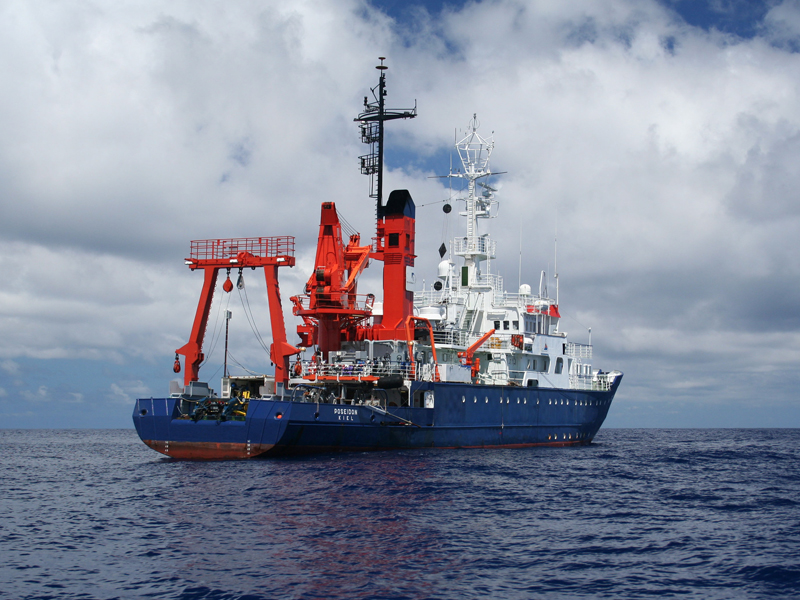POSEIDON POS525
- Area:
- Norwegian Sea
- Time:
-
29.06.2018 - 20.07.2018
- Institution:
- GEOMAR
- Chief scientist:
- Janina Büscher
The main purposes of the cruise are investigations of cold-water coral ecosystems along the Norwegian coasts and margins from northern-most cold-water coral occurrences to the mid-Norwegian reefs in the North Atlantic with regard to differences in the physiological condition of the organisms of different reef sites. For this, natural growth and degradation processes, the metabolic activity, and other indicators of the physiological performance (i.e. ‘fitness’, reproduction, lipid composition) of the main framework-forming coral Lophelia pertusa and associated key organisms, namely the bivalve Acesta excavata and the sponge Geodia barretti, will be examined by in situ as well as on-board experiments. In situ measurements include settlement experiments of marked live and dead coral framework that will be deployed at the different reef sites to assess natural growth and bioerosion (degradation) rates, community oxygen consumption rates to assess the natural variability of metabolic rates among different populations, as well as carbon and nitrogen fluxes via isotope injection studies. Moreover, the physicochemical properties of the water masses surrounding the coral reefs (i.e. temperature, salinity, pH, carbonate chemistry), as well as the food web dynamics (i.e. assessment of natural food sources and availability) will be investigated at all reef sites that will be approached in order to compare biological, physical, and chemical driving forces affecting ecosystem dynamics and functioning. The measurements will be carried out at an offshore reef and an opposing coastal area within Norwegian fjords at all localities along the Norwegian coasts from north to mid Norway to estimate differences between cold-water coral occurrences under varying environmental conditions.
Cold-water corals are important bioengineers of the world’s oceans. They provide structural habitat for a diverse species community. However, these fragile organisms, that build their calcareous skeletons from calcium carbonate (CaCO3), are threatened through human activities like fishing, pollution, and climate change. Ocean acidification, caused by anthropogenic CO2 emissions, lead to lowered seawater pH and decreasing carbonate ion concentrations, which in turn results in a diminished saturation state of the oceans with respect to CaCO3; consequently affecting the ability of calcifying organisms such as scleractinian corals to build their protective shells and skeletons. At the same time, the corals will experience a steady warming of their environment. Studies on the sensitivity of cold-water corals to climate change mainly concentrated on single stressors in experimental laboratory approaches, thus not accounting for multiple stressor impacts and interactions of different organisms of the ecosystem. Moreover, in situ physiological data on the organism’s performance at current status are scarce. Thus, extrapolation of experimental outcomes to the natural environment may be difficult and assumptions on future conditions of cold-water coral ecosystems precarious.
Therewith, the achievements of the cruise will contribute to the understanding of the variability in environmental conditions on the rates of biological and physiological processes of Lophelia pertusa and associated key species, as well as bioeroders in Norwegian arctic and boreal regions and will, thus, help in future ocean change investigations to define experimental conditions and interpret results.



